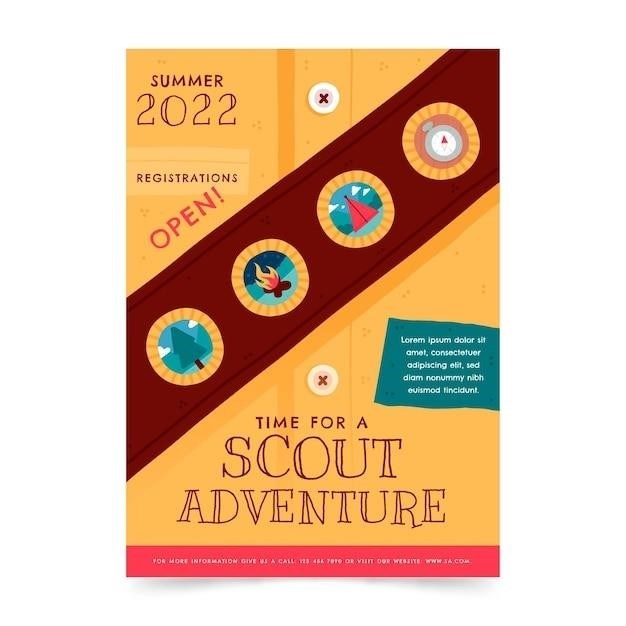Michigan Free Lunch Program 2024-2025⁚ Overview
Michigan’s universal free school lunch program continues in 2024-2025‚ providing nutritious meals to 1.4 million students daily. Funding secured ensures breakfast and lunch remain free‚ regardless of income. This initiative significantly benefits students and families.
Funding and Budget Allocation
The Michigan School Meals Program’s funding for the 2024-2025 school year is primarily sourced from a substantial $200 million appropriation within the Fiscal Year 2025 School Aid budget. This significant allocation‚ secured through the efforts of Governor Gretchen Whitmer‚ ensures the continuation of free breakfast and lunch for all 1.4 million public school students across the state. The budget’s commitment to this program underscores the state’s prioritization of student nutrition and its recognition of the financial strain on families. This funding model allows for consistent meal provision throughout the academic year‚ easing the burden of food costs on Michigan households and promoting optimal student well-being. The detailed budget breakdown may be available through the Michigan Department of Education’s official website or through public records requests.
Program Continuation and Eligibility
The Michigan free school lunch program’s continuation for the 2024-2025 school year is guaranteed by the significant funding allocated in the state budget. All 1.4 million students in Michigan’s public schools are eligible to receive free breakfast and lunch‚ regardless of their family’s income level. This universal eligibility eliminates the need for individual applications or income verification processes‚ simplifying participation for all students. The program aims to ensure every child has access to nutritious meals‚ supporting their health‚ academic performance‚ and overall well-being. While the meals are free for all students‚ some schools might still collect data for reporting purposes or to track participation‚ although this does not affect eligibility. The program’s continuation reflects a commitment to providing equitable access to essential resources for all Michigan students.

Impact and Benefits of the Program
Improved student nutrition and academic performance are key benefits. Financial relief for families‚ saving approximately $850 annually per child‚ is also a significant positive impact.
Financial Relief for Families
The Michigan free lunch program provides substantial financial relief to families across the state. The elimination of daily lunch costs translates to significant annual savings‚ estimated at $850 per child. This considerable reduction in household expenses eases the financial burden on families‚ particularly those with multiple school-aged children. The savings allow families to allocate funds towards other essential needs such as housing‚ utilities‚ healthcare‚ or clothing. By freeing up this budget‚ the program contributes to improved family financial stability and reduces the stress associated with affording daily meals for their children. The positive impact extends beyond direct financial savings; the program’s contribution to overall family well-being is undeniable‚ enabling families to focus on other crucial aspects of their lives without the constant worry of providing daily meals for their children. This frees up resources and reduces the stress associated with providing nutritious meals every day. The program’s impact on family finances is substantial‚ contributing to a more secure and stable environment for children to thrive.
Improved Student Nutrition and Academic Performance
The Michigan free lunch program significantly enhances student nutrition and positively impacts academic performance. Access to nutritious meals throughout the school day combats hunger‚ a major impediment to learning. Well-nourished students demonstrate improved concentration‚ focus‚ and cognitive function‚ leading to better academic outcomes. Studies consistently show a correlation between proper nutrition and increased academic achievement‚ including higher test scores‚ improved attendance‚ and reduced disciplinary issues. The program ensures students receive the essential nutrients needed for optimal brain development and overall health‚ creating a conducive environment for learning and growth. By addressing nutritional needs‚ the program contributes to a more equitable educational experience‚ leveling the playing field for students from various socioeconomic backgrounds and fostering a healthier‚ more productive learning environment. The positive impact on students’ overall well-being extends beyond academics‚ fostering improved physical and mental health;
Program Details and Implementation
Michigan’s free school meal program operates in all public schools‚ providing breakfast and lunch to all students daily. No application is needed; meals are universally accessible. The program’s distribution methods vary by school.
Meal Service and Distribution
The Michigan School Meals Program’s meal service and distribution methods are designed to ensure that all students have access to nutritious meals throughout the school year. While specific procedures might vary slightly from school to school‚ the overall goal is consistent⁚ to provide a convenient and efficient way for students to receive their free breakfast and lunch. Many schools utilize a centralized cafeteria system where meals are served during designated times‚ typically before and after the school day’s academic sessions. Other schools may employ alternative methods‚ such as delivering meals directly to classrooms‚ particularly for younger students or those with special needs. The program also takes into account the needs of students with dietary restrictions or allergies‚ offering a variety of meal options to accommodate diverse preferences and health requirements. Furthermore‚ to ensure accessibility and minimize disruptions to the learning environment‚ schools carefully plan meal times and service strategies to ensure a smooth and orderly process‚ allowing students to focus on their studies. The program emphasizes a welcoming and inclusive atmosphere‚ ensuring all students feel comfortable and supported in accessing their meals. Efficient logistics and well-trained staff are key to the success of this vital program.
Application Process and Eligibility Criteria
For the 2024-2025 school year‚ Michigan’s free school lunch program operates under a universal free meal policy. This means that all students enrolled in participating public schools are eligible to receive free breakfast and lunch‚ regardless of family income. Unlike previous years where applications were necessary to determine eligibility based on income guidelines‚ the simplified process eliminates the need for applications for this program. This streamlined approach ensures all students have access to nutritious meals without added bureaucratic hurdles. While no formal application is required‚ schools may still collect data for tracking purposes and to align with federal reporting requirements. This data collection might involve brief questionnaires or simple registration forms that do not influence a student’s eligibility for free meals. The focus is on providing access to food for all students‚ making the process as straightforward and seamless as possible for both families and school staff. The universal free program aims to reduce administrative burden and ensure all students are well-nourished;

Michigan School Meals Program Funding
The Michigan School Meals Program for 2024-2025 is primarily funded by a $200 million appropriation within the state’s FY2025 School Aid budget. This significant investment ensures continued free meals for all students.
State and Federal Funding Sources
The Michigan School Meals Program’s funding is a collaborative effort between state and federal resources. A substantial portion originates from the state budget‚ specifically a significant $200 million allocation within the Fiscal Year 2025 School Aid budget. This considerable state investment underscores Michigan’s commitment to ensuring all students have access to nutritious meals‚ regardless of their families’ financial situations. While the provided text doesn’t explicitly detail federal contributions‚ it’s reasonable to assume that federal programs like the National School Lunch Program (NSLP) and potentially others contribute supplementary funding. The exact breakdown of federal versus state funding isn’t readily available in the provided text but the substantial state commitment is clearly evident. The combined state and federal funding streams work together to make the program viable and impactful for Michigan’s students.
Budget Breakdown and Allocation
The provided text indicates a $200 million appropriation within the Fiscal Year 2025 School Aid budget to fund the Michigan School Meals Program for the 2024-2025 school year. This substantial sum covers the cost of providing free breakfast and lunch to approximately 1.4 million public school students across the state. While a precise breakdown of how this $200 million is allocated across various program aspects (e.g.‚ food purchasing‚ staff salaries‚ administrative costs) is unavailable in the given source material‚ it’s clear that the budget’s primary focus is on ensuring the consistent delivery of meals to all students. The program’s success hinges on efficient budget management and allocation to effectively reach its goal of providing universal free meals. Further details regarding specific budgetary line items would require access to official state budget documents.
